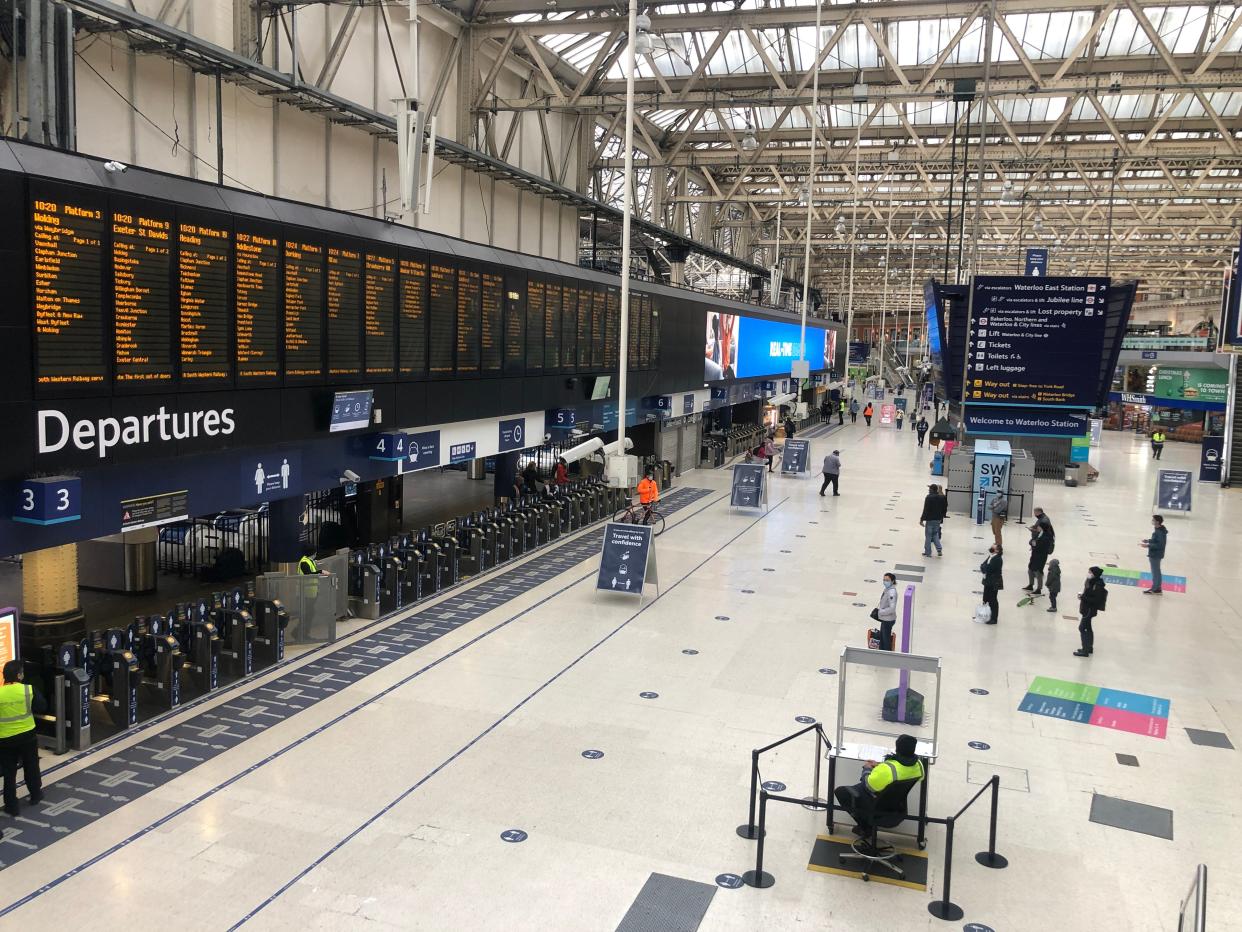Can I travel after lockdown? New rules for holidays and moving between tiers

England’s nationwide lockdown may be ending on 2 December, but that doesn’t mean all restrictions are being lifted.
Instead, the nation will be divided into different tiers according the level of coronavirus in the area.
And unlike the previous system, the new tiers will be stricter.
Here’s everything you need to know about travelling after lockdown.
What are the current rules on travel within the UK and when will they change?
In England, no one should be travelling except for essential reasons – such as for work, education, medical treatment and other important journeys.
From one minute past midnight on Wednesday 2 December this will end – and with it 27 days of lockdown in England.
Read more: Lockdown tiers: The full list of coronavirus restrictions by area
The prime minister said: “As we end our national restrictions on 2 December, they will not be replaced with a free for all. England will instead continue to use a sensible approach based on three tiers.
"And since the prevalence of the disease is, alas, still high, these tiers will remain tough.”
The other UK nations have their own rules; in Scotland these are “tier specific”.
What will the new rules be?
Only the rules for England have been published, and this article covers only England at present.
The basic premise is: “Wherever possible people should avoid travelling and minimise social contact.”
But the rules depend entirely on the tier in which you live. The government has yet to assign tiers 1, 2 and 3 to areas in England.
For residents of tier 3 areas, the government says: "Avoid travelling out of the area, other than where necessary such as for work, education, youth services, medical attention or because of caring responsibilities.”
People in tiers 1 and 2 can travel outside their area for any reason, including holidays, but must only go to tier 3 locations for essential reasons.
Travelling through tier 3 areas en route between tier 1 and/or 2 areas is acceptable.
Read more: Can you go on holiday if you live in a tier 3 area?
Can I stay in a hotel or with friends/family?
You can stay overnight (in private accommodation or hotels) in tiers 1 and 2. In tier 1, this can be in a group of up to six who do not need to be in your household/support bubble. In tier 2, stays can only be with your household/support bubble.
Overnight stays in tier 3 are possible only for essential reasons.
Can I travel with friends and family?
Again, it depends on the tier. In tiers 2 and 3, you may be indoors only with members of your household/support bubble.
It is not clear whether this applies to trains and buses, but in the absence of other guidance you should assume that you should not travel with friends outside your household.
Can I travel abroad from 2 December?
The government says: “The stay at home requirement will end, with domestic and international travel being permitted again subject to guidance in each tier.”
Those in tier 3 are advised not to travel outside their area for non-essential purposes, but after much confusion the government has now confirmed that this is only guidance – and that there is no legal impediment.
If you live in tier 1 or 2 you would be able to travel through a tier 3 area in order to reach your final destination – eg Manchester airport, if Greater Manchester returns to tier 3.
Of course your destination country may well have its own rules and restrictions – such as Spain’s requirement for a negative PCR test taken within 72 hours of arrival.
On return, the standard UK rules on quarantine will apply. These are expected to be eased for arrivals from 15 December, with a negative coronavirus test five days after arrival enabling travellers to end self-isolation.
Read more: Covid tier rules: Everything you can and can’t do in tiers 1, 2 and 3 after lockdown
What will happen during ‘Christmas Ease’?
Rules on travel will be eased for some days either side of 25 December. The UK government says: "It will not be possible to celebrate Christmas in the normal way. However, the government recognises that Christmas is an important time of year for many people, all across the UK.
“The government and the devolved administrations are working together to design a time-limited change to social restrictions over the Christmas period.
“Even where it is within the rules, meeting with friends and family over Christmas will be a personal judgement for individuals to take, mindful of the risks to themselves and others, particularly those who are vulnerable.”
The spell when families and friends are allowed to meet over Christmas has not yet been defined, and neither have the rules that will apply – although it is thought there will be a nationwide lifting of many travel restrictions, possibly between 24 and 28 December.
However, it coincides with a time of widespread disruption for planned rail engineering work between 23 December and the end of the year.
Read more: When does lockdown end in England?
Do we know what will happen after Christmas and in the New Year?
You can fairly safely assume it will be back to the pre-Christmas Ease rules.
The government says: “It will be particularly important to be cautious early in the New Year.
"Christmas will likely lead to an increase in transmission and, historically, the period after Christmas is when the NHS sees the greatest pressure on services such as Accident & Emergency and the highest rates of bed occupancy.”


